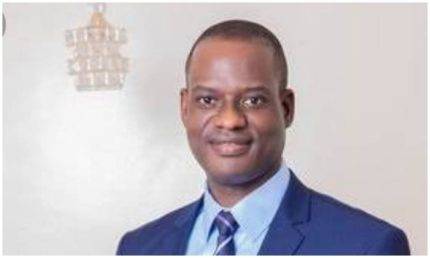Mr. Taiwo Oyedele, Chairman of the Presidential Tax Reform Committee, recently expressed concerns that allowing state governments to collect Value-Added Tax (VAT) could result in serious economic setbacks. Taiwo Oyedele explained that such a shift would likely harm business operations, cause disruption in revenue distribution, and ultimately lead to a weaker economy. His comments reflect a cautionary stance toward decentralizing VAT collection, as the change could lead to an uneven and inefficient revenue structure.
Taiwo Oyedele noted that the VAT system, which has become one of Nigeria’s leading sources of government revenue, could suffer from inconsistencies if handled at the state level. Drawing from historical examples, he highlighted that similar attempts to decentralize tax collection have had limited success in the past. Allowing states to manage VAT independently might lead to fragmented regulations, increased costs for businesses, and reduced overall collections.
Lessons from the 1980s Sales Tax Experiment
Taiwo Oyedele pointed out that a similar approach had been tried in the 1980s when states were allowed to collect sales tax, yet the outcome was less than favorable. He explained that during this period, sub-national governments struggled to generate substantial revenue from sales taxes, highlighting that even a modest level of coordination between states was difficult to achieve. This historical perspective offers a valuable lesson on the potential pitfalls of decentralizing tax responsibilities.
The revenue shortfalls in the 1980s were exacerbated by inefficiencies and administrative complexities, which ultimately led to the replacement of sales tax with the current VAT system. Taiwo Oyedele’s remarks suggest that reintroducing a state-level VAT collection could lead to similar problems, placing unnecessary strain on both state and business resources. According to him, a unified VAT system remains critical for ensuring robust and consistent tax revenue generation.
Constitutional Background and VAT Omission
Taiwo Oyedele also addressed the constitutional basis for VAT collection, explaining that the absence of VAT from the 1979 and 1999 Constitutions has left a gray area exploited by some state governments. The 1979 Constitution did not include VAT because it had not yet been implemented, while the 1999 Constitution, which mirrored its predecessor, overlooked VAT despite its growing economic significance.
This oversight has fueled legal battles, with states like Rivers and Lagos arguing that VAT should be a residual matter under state jurisdiction. Taiwo Oyedele warned that a Supreme Court decision in favor of state-controlled VAT collection could lead to chaotic revenue distribution, affecting states with varying economic capabilities differently. He emphasized the need for a constitutional amendment to clarify VAT’s role as a federal tax to prevent future conflicts.
Business Impact and Revenue Distribution Concerns
The chairman cautioned that state-level VAT collection would create severe challenges for businesses operating across multiple states. He explained that businesses could face multiple tax systems, increasing their administrative burden and compliance costs. This fragmentation could make it challenging for businesses to operate efficiently, especially in industries heavily reliant on inter-state commerce.
According to Taiwo Oyedele, allowing each state to set its VAT policies would likely decrease overall tax revenue, as businesses could struggle to navigate the complexities of multiple tax regimes. He emphasized that the current federal VAT system, which pools resources for redistribution, enables equitable revenue distribution to all states, helping maintain a balanced national economy.
The Proposal for an Improved Revenue-Sharing Formula
Taiwo Oyedele proposed an updated revenue-sharing formula that prioritizes fairness while maintaining a centralized VAT collection system. Currently, VAT revenue is divided among states based on derivation (20%), equality (50%), and population (30%). The new proposal suggests increasing derivation to 60%, reducing equality to 20%, and population-based allocation to 20%. This adjustment aims to reflect regional contributions more accurately while ensuring the distribution remains balanced.
This proposed formula seeks to address long-standing issues in revenue allocation by rewarding states that contribute more to VAT collection while still supporting less economically advantaged regions. Taiwo Oyedele asserted that this adjustment would not only promote fairness but also discourage states from pursuing separate VAT systems, ensuring a smoother distribution process.
The Importance of Centralized VAT on Imports and International Services
In his remarks, Oyedele highlighted the importance of VAT collected from imports and international services, which currently constitutes a significant portion of Nigeria’s VAT revenue. He noted that the federal VAT system allows for efficient collection of these funds, which are then pooled and shared among all states, ensuring no state is left out of the benefits of international transactions.
Taiwo Oyedele expressed concerns that a shift to state-controlled VAT could lead to a decrease in import VAT revenue, as individual states lack the infrastructure and international jurisdiction to manage such taxes effectively. This centralized approach, he argued, is crucial for maintaining a steady flow of revenue from international sources, ensuring that each state receives a fair share of national income.
Table of Contents
Discover more from OGM News NG
Subscribe to get the latest posts sent to your email.














